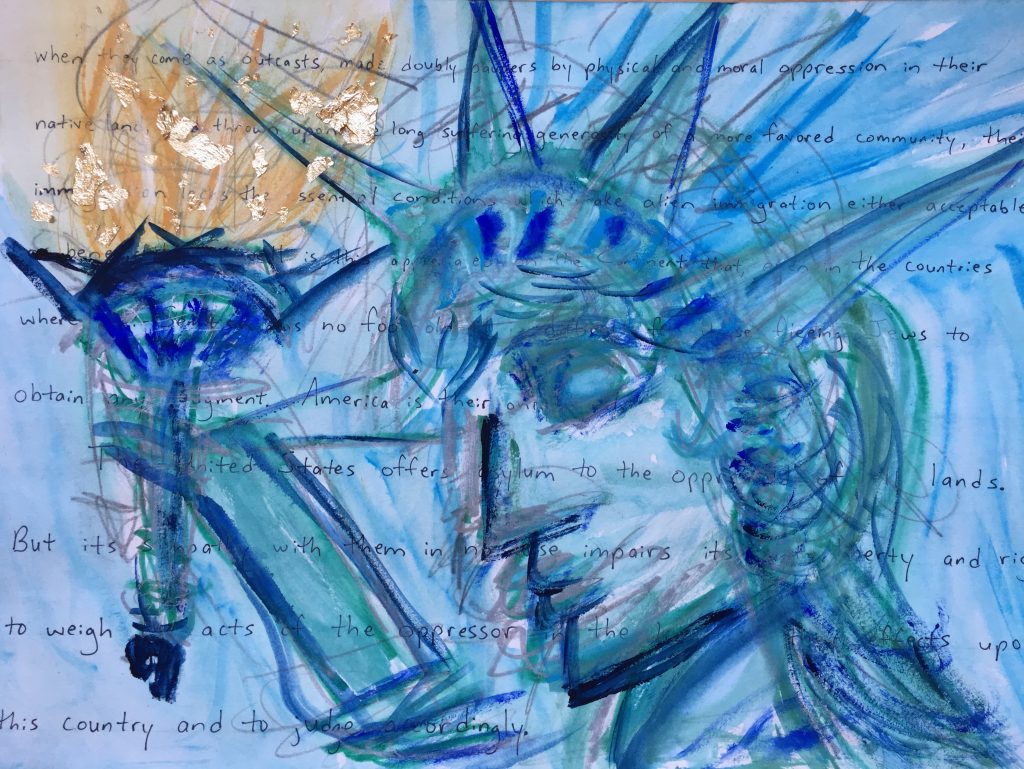Graphite, ink, gouache, and gold flake on A3 paper.
… when they come as outcasts, made doubly paupers by physical and moral oppression in their native land, and thrown upon the long suffering generosity of a more favored community, their immigration lacks the essential conditions which make alien immigration either acceptable or beneficial. So well is this appreciated on the Continent that, even in the countries where anti-Semitism has no foothold, it is difficult for these fleeing Jews to obtain any lodgment. America is their only goal.
The United States offers asylum to the oppressed of all lands. But its sympathy with them in no wise impairs its just liberty and right to weigh the acts of the oppressor in the light of their effects upon this country and to judge accordingly.
—from then -U.S. Secretary of State John Hay‘s The Roumanian Note, reprinted in Call Her Blessed by Juliene Berk, my long-lost great-aunt’s historical novelized account of my great-grandmother Lara Berkovitz (née Lore Moscovici)’s life as a Romanian Jew who fled anti-Semitism for America in 1907 (italics mine). She immigrated 34 years before 1/3 of the Jewish population in her hometown of Jassy was massacred or deported in a pogrom that was considered brutal during the Holocaust—before the full extent of the Final Solution became widely known. And it was a little over a hundred years before I migrated back to Europe fleeing rising fascism in the States. Some people in similar circumstances have access to European citizenship repatriation—but most Romanian Jews don’t, since they were overwhelmingly denied citizenship in the first place.
In spite of John Hay’s apparent (measured) sympathies, Lara’s mother-in-law Beila got sick on a later boat over to the States. She was denied entry as a result, and died—blinded from the then-incurable disease she had contracted in the dirty ship’s hold, and despondent from the death of her dream of being reunited with her family in a safe place—back in Romania. It is impossible to count the number of migrants fleeing violence today who attempt to cross the Mediterranean to Europe, and then try—or try and fail—to make it back due either to lack of access to safe and legal routes, or to lack of acceptable living and working conditions where they seek asylum.
This poem is about that.
There was always a “but”
for kike, gyp, or slut.
Home was a conditional
for the poor and liminal.
For a million Irish who got there,
a million were left starving and bare.
And if you were a Hebrew Kraut,
America often could do without
your poor and huddled mass—
with the World Wars on its ass.
Unless you’re one of a luckier few,
I’m the product just like you
of a long line of people who knew
when it was time—and up and flew.
Wherever they could go, they went.
Where the doors were closed, they spent
untold dark and hopeless nights and days
knocking until going (back) their ways.
Now and again we live in a time
when human life ain’t worth a dime.
